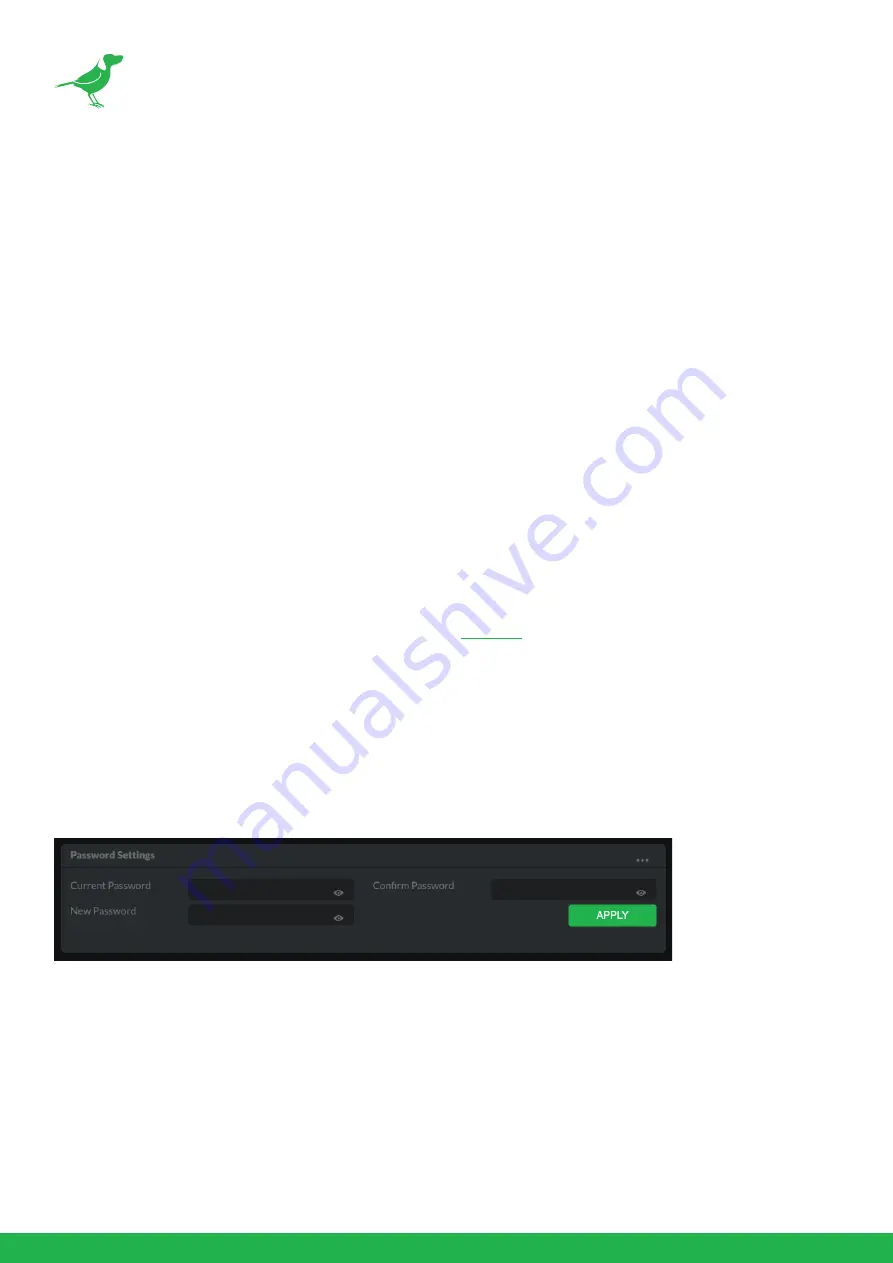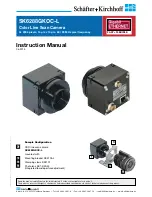
29
UDP
UDP is recommended for networks where there is extended latency from one end to the other. The nature of
UDP means that it does not receive a confirmation of each packet being received successfully – vastly improving
performance on busy networks. UDP can have some consequences f there are other issues on the network such as
jitter or lost packets as it will not inherently re-sent a lost packet.
R-UDP (Reliable UDP)
This protocol bridges the performance of TCP and UDP. Compared to TCP, it reduces overall network load (allowing
more NDI streams) by not requiring every packet to be ‘acknowledged’ by every receiver – has error correction
built in for smoothness and reliability.
Multicast
Multicast is especially useful for use-cases that require a single source to be received on multiple receivers
simultaneously. Utilizing Multicast offloads the distribution of the NDI® A/V packets from the BirdDog P100 to the
network infrastructure. You should take care to ensure your network is specifically configured to support Multicast
as using it on an ill-prepared network can create unintended network problems.
NDI Discovery
If you choose to use a NDI® discovery server, you can configure it in this tab. By default, NDI® utilizes mDNS
(multicast Domain Name System) to create the zero configuration environment for discovery. Unless the network
is specifically configured to not allow mDNS, NDI® sources will be discovered.
The NDI® discovery service is designed to replace the automatic discovery NDI® uses with a server that operates
as an efficient centralized registry of NDI® sources that requires much less bandwidth. Multiple servers can be
specified for failover reduntancy. NDI® discovery server also helps with location of devices that reside on different
subnets. The NDI® Discovery Server is available in the free
1.
If you are using one or more NDI® Discovery Servers, click the ON button.
2.
Enter a comma delimited list of the IP address(es) of your NDI® Discovery Server(s).
3.
Click the APPLY button to save your changes.
System
Password Settings
The BirdUI is secured by a user-selectable password. To make changes to any settings, you'll need to log in.
The default password is birddog (one word, lower case). It is recommended that the default password be changed,
since the BirdUI grants full access to the camera configuration settings.
You can change the password in the Password Settings tab.
1.
Enter the current password.
2.
Enter the new password. It is recommended that you change this password to retain administration rights to
prevent unauthorized changes in a network environment where PTZ Keyboard is shared with other users (e.g.
not private). Confirm the new password and click the APPLY button.
Содержание BirdDog P100
Страница 1: ...USER GUIDE NDI 5 2022 ...
Страница 57: ...53 Camera Dimensions Unit mm ...
Страница 60: ...WELCOME TO THE FUTURE ...
Страница 61: ...birddog tv hello birddog tv ...
















































